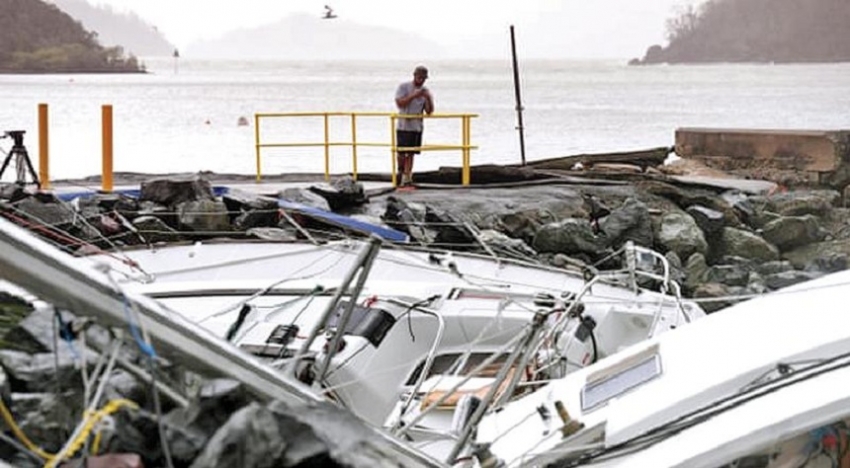Reports have shown the dangers of extreme weather if warming reaches 1.5C, and the need for governments to more than triple their efforts if these goals are to be maintained.Jim Yong Kim, the president of the World Bank, said the poorest and most vulnerable people were at the greatest risk, and urged other financial institutions to follow its lead.“We are pushing ourselves to do more and go faster on climate and we call on the global community to do the same,” he said. “This is about putting countries and communities in charge of building a safer, more climate-resilient future.” This year, the World Bank devoted $20.5bn to climate change, meeting the targets it promised as part of the Paris agreement two years early. However, the group has decided more is needed.
Adapting to the effects of climate change that are already inevitable will be a key aim, and for the first time the World Bank will put this effort on an equal footing with reductions in emissions, investing $50bn in direct finance to adaptation over the period.Of the $200bn, half will come in direct funding from the World Bank and half will be loans and other forms of assistance from other parts of the World Bank group, aimed at mobilising further finance from the private sector.
For instance, some funding will go towards providing early-warning systems and high-quality weather forecasts, which is expected to help 250 million people in 30 developing countries prepare for extreme weather.Further funding will go towards ‘smart agriculture’, which is better adapted to the expected changes in weather and will help protect food production in some of the worst-affected developing countries. It will also help to protect 120m hectares of forest.Kristalina Georgieva, the chief executive of the World Bank, said: “People are losing their lives and livelihoods because of the disastrous effects of climate change. We must fight the causes but also adapt to the consequences.”
Andrew Steer, the president of the World Resources Institute, said the bold and ambitious commitments would send a strong signal to private sector financiers.
“With climate impacts already taking a heavy toll around the globe, we know a far greater response is needed. Investing in climate action is the smart choice – it can reduce poverty, inspire innovation and bring far-reaching benefits to society,” he said. -the Guardian



















